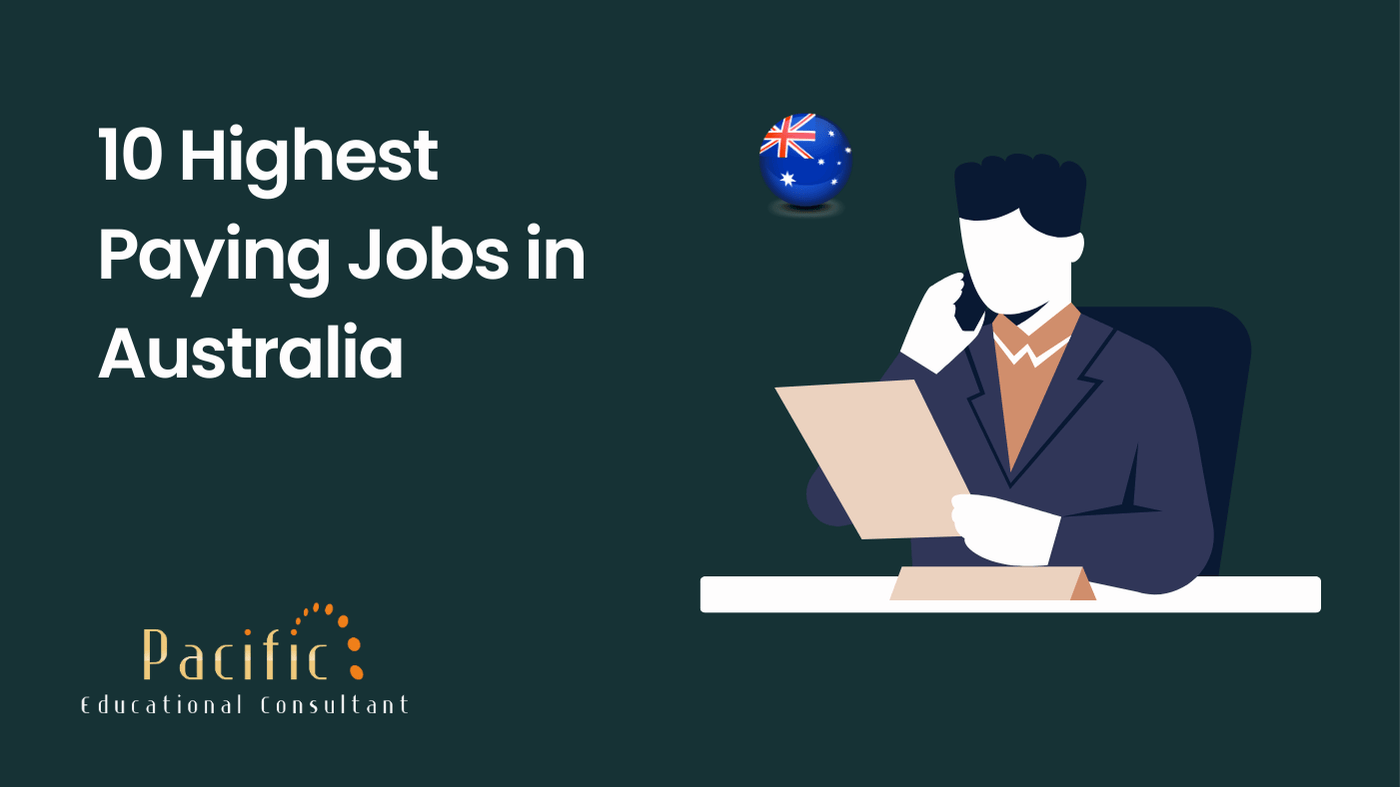


Australia isn’t just about kangaroos, sunny beaches, and the Sydney Opera House. It’s a thriving economic powerhouse offering fantastic career opportunities, a high standard of living, and a multicultural society that warmly welcomes skilled professionals.
Here’s why working in Australia is a smart move:
Strong Economy: With one of the world’s most stable economies, Australia consistently ranks among the best countries for career growth.
High Salaries: The minimum wage in Australia is among the highest globally, and top-tier jobs offer extremely competitive salaries.
Work-Life Balance: Aussies take their downtime seriously. Flexible working conditions and generous leave entitlements are the norm.
Migration Opportunities: Skilled workers are in demand, and Australia’s immigration pathways make it relatively easier for professionals to settle long-term.
If you’re considering a career move or planning to study and work abroad, Australia should be on your radar—especially in 2025.
Let’s get straight to it. Based on recent industry data and market demand, here are the top 10 highest paying jobs in Australia for 2025:
| Job Title | Average Annual Salary (AUD) | Equivalent in INR |
| Neurosurgeon | $425,000+ | ₹2.3 Crore |
| CEO (Chief Executive Officer) | $350,000+ | ₹1.9 Crore |
| Anaesthetist | $320,000+ | ₹1.7 Crore |
| Financial Analyst | $150,000+ | ₹81 Lakhs |
| Human Resources Director | $180,000+ | ₹97 Lakhs |
| Legal Professional (Barrister/Solicitor) | $160,000+ | ₹86 Lakhs |
| Mining Engineer | $170,000+ | ₹92 Lakhs |
| Financial Investment Advisor | $155,000+ | ₹83 Lakhs |
| Software Architect | $145,000+ | ₹78 Lakhs |
| Construction Manager | $140,000+ | ₹75 Lakhs |
Quick Insight: Medical and finance professionals continue to dominate the salary charts. However, tech and engineering roles are rapidly gaining ground, especially as the country leans into digital transformation.
Wondering where the big money flows in Australia? Let’s break down the sectors that are booming with high-paying roles:
Healthcare & Medicine
Roles: Neurosurgeons, Anaesthetists, General Practitioners
Why: An ageing population and increased demand for healthcare services.
Finance & Investment
Roles: Financial Analysts, Investment Advisors, Risk Managers
Why: Australia’s position as a major Asia-Pacific financial hub.
Information Technology
Roles: Software Architects, Data Scientists, Cybersecurity Analysts
Why: Demand for tech-savvy talent is skyrocketing with digital transformation.
Legal Services
Roles: Corporate Lawyers, Barristers
Why: Increasing need for legal services across corporations and government.
Engineering & Construction
Roles: Civil Engineers, Construction Managers, Mining Engineers
Why: Infrastructure and resource development projects are on the rise.
To land a top-paying job, the right degree can be your golden ticket. Here are some of the highest ROI (Return on Investment) courses in Australia:
| Course | Associated Career | Average Salary (AUD) |
| MBBS / Medical Degrees | Neurosurgeon, Anaesthetist | $300K–$425K |
| Master of Finance | Financial Analyst, Investment Banker | $150K–$200K |
| Law Degree (JD/LLB) | Lawyer, Corporate Counsel | $120K–$160K |
| Computer Science / IT | Software Architect, Data Scientist | $130K–$145K |
| Engineering (Mining, Civil, Electrical) | Engineering Roles | $120K–$170K |
Pro Tip: Australian universities offer globally recognized degrees and often provide post-study work rights that give graduates a foot in the job market door.
Not all parts of Australia are equal when it comes to job opportunities and salaries. These cities are your best bet:
Sydney (NSW)
Hub for finance, tech, and legal sectors.
Average Salary: $95K–$120K
Melbourne (VIC)
Strong presence in healthcare, education, and IT.
Average Salary: $90K–$115K
Canberra (ACT)
Government jobs, tech, and policy roles dominate.
Average Salary: $100K+
Perth (WA)
Mining and energy jobs flourish here.
Average Salary: $100K–$130K
Brisbane (QLD)
Growing construction and healthcare opportunities.
Average Salary: $85K–$110K
Don’t have a formal university degree? No worries! These roles focus on skills, experience, and certifications:
| Job Title | Average Salary (AUD) |
| Safety Consultant | $95K |
| Social Media Manager | $85K |
| Office Manager | $82K |
| Creative Designer | $90K |
Hot Tip: Short courses and industry certifications can help you climb the salary ladder without traditional education.
If you’re a foreign professional eyeing high-paying jobs in Australia, immigration is your first hurdle. Here’s what you need to know:
Skilled Occupation List (SOL): This is a dynamic list of in-demand professions. If your job is on the list, you're halfway there.
Points-Based System: You’ll need to score points based on age, education, English proficiency, and work experience.
Skills Assessment: Your qualifications and experience must be validated by Australian authorities.
Health & Character Requirements: These include medical checks and police clearance.
Pro Tip: Check if your job falls under MLTSSL (Medium and Long-Term Strategic Skills List) for longer visa options.
Getting the right visa is crucial. Here are some visa pathways tailored for professionals:
Subclass 189 – Skilled Independent Visa
No sponsorship needed
Permanent residency
Suitable for highly skilled workers
Subclass 190 – Skilled Nominated Visa
Requires state nomination
Permanent residency
Great for those whose skills are in demand in specific regions
Subclass 482 – Temporary Skill Shortage Visa
Employer-sponsored
Temporary but renewable
Often leads to permanent residency
Subclass 485 – Graduate Temporary Visa
For international students
Up to 4 years of work rights
Pathway to PR
Important Tip: Always use an immigration agent or official government resources to stay updated on changing policies.
Q. What jobs pay $100,000 a year in Australia?
Ans.: Jobs in sectors like healthcare, IT, finance, engineering, and legal services often pay over AUD 100,000 annually. Common roles include Software Engineers, Project Managers, Registered Nurses, Civil Engineers, Construction Managers, and Financial Analysts. Senior positions or those with specialized skills tend to easily cross this salary threshold, especially in major cities like Sydney and Melbourne.
Ans.: The best jobs for Indians in Australia are those in IT, healthcare, and engineering—fields where Indian professionals are in high demand. Roles like Software Developer, IT Consultant, Registered Nurse, Civil Engineer, and Financial Analyst are popular due to high salaries and a strong presence of Indian professionals in these industries. These jobs also offer excellent pathways to permanent residency.
Ans.: Careers in demand in Australia include those in healthcare (nurses, doctors), technology (software developers, cybersecurity experts), engineering (civil, mining), finance (accountants, analysts), and education. The Australian Government updates a Skilled Occupation List regularly, which highlights professions facing shortages and offering better chances for employment and visa approval.
Ans.: Indians in Australia typically settle in cities with vibrant job markets and multicultural communities. The top cities include Melbourne, Sydney, Brisbane, and Perth. Suburbs like Parramatta in Sydney and Tarneit in Melbourne have large Indian populations, offering cultural familiarity, community support, and proximity to job hubs.
Ans.: While Australia is welcoming, Indian migrants may face challenges such as adapting to cultural differences, understanding the local job market, credential recognition, and limited local experience when job hunting. However, most overcome these through networking, upskilling, and participating in local communities and professional groups.
Ans.: While there isn’t an officially confirmed titleholder, several Indian-origin entrepreneurs and investors in Melbourne have amassed considerable wealth. Prominent names in sectors like property development, tech startups, and education have gained recognition. However, due to privacy laws and lack of public records, exact rankings aren't officially documented.
Ans.: The cost of living varies by city, but on average, Indians in Australia spend between AUD 2,000 to AUD 3,500 per month (INR 1.1L to INR 1.9L), including rent, food, transport, and other essentials. Cities like Sydney and Melbourne are more expensive, while places like Adelaide or Perth are relatively affordable. Student and shared accommodations can significantly reduce costs.

Describe a person who helps to protect the environment - IELTS Cue Card

Describe a live performance you enjoyed watching - IELTS Cue Card

Describe a place with a lot of trees that you would like to visit (e.g. a forest, oasis) - IELTS Cue Card

Describe a kind of foreign food you like and you have had - IELTS Cue Card

Bonafide Certificate: Sample, Meaning, Application Letter & Format

Describe something you bought that you really wanted to return - IELTS Cue Card

Describe an unforgettable experience that you had - IELTS Cue Card

Describe a place where you saw animals - IELTS Cue Card

Top Part-Time Jobs in Dubai for Indian Students

Top Safest Countries for Women to Study Abroad in 2026-2027